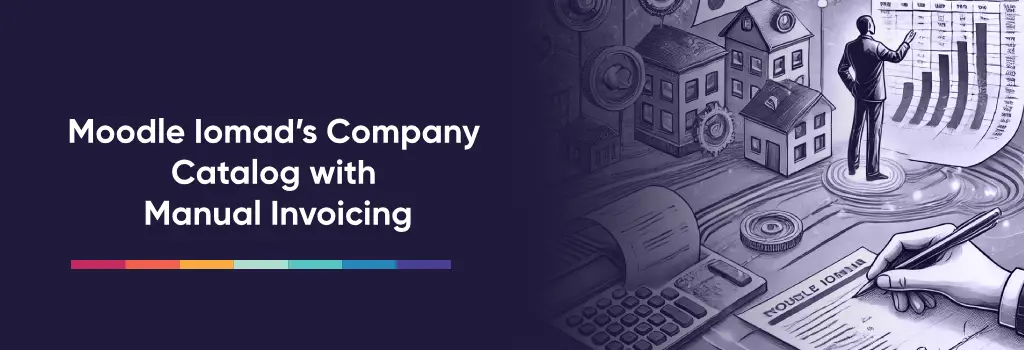For organizations using Moodle Iomad, the need to monetize training and courses across multiple clients (tenants) is increasingly common. But enabling eCommerce in a multi-tenant Moodle environment isn’t always straightforward—especially if you want each tenant to control their own store or checkout experience. This article explores various strategies for integrating eCommerce with Moodle Iomad, compares key plugins and solutions, and clarifies which support per-tenant configurations versus global (single) setups.
I am Director of Rahab Ministry (a program of Youth Unlimited). We are impressed with Mindfield’s IT specialists in helping us redesign a website (Rahab.yugta.ca) and their ongoing support. They were responsive and helped us think ahead instead of waiting for us to tell them what needed to be done. We will continue to look forward to their support.
Joanna Yee
Director, Rahab Ministry.
review Source: Google Reviews
Outline
-
-
Iomad’s Built-In Stripe Payment Gateway
-
Edwiser Bridge & WooCommerce
-
Custom Multi-Tenant Stripe Integration for Moodle
-
Moodle Plugins – PayPal, Stripe (Enhanced), Course Merchant
-
Moodle Iomad’s Company Catalog with Manual Invoicing
-
Feature Comparison Table
-
Benefits of Hiring Moodle Expert Developers for
-
Frequently Asked Questions(FAQs)
-
Iomad’s Built-In Stripe Payment Gateway

Moodle Iomad includes a native integration with Stripe, allowing users to purchase access to Moodle courses directly through credit card payments.
Advantages:
-
Built into Moodle Iomad core
-
Seamless connection with Moodle enrolment workflows
-
No external systems or CMS required
Limitations:
-
Only one Stripe account can be configured
-
No support for tenant-specific payment settings
-
Cannot customize checkout experience per Moodle company
Tenant Configuration:
Single configuration only. All tenants use the same Stripe setup across the Moodle site.
Edwiser Bridge & WooCommerce

This strategy involves connecting Moodle to WordPress using Edwiser Bridge, and managing the storefront using WooCommerce. Course information is synced from Moodle to WordPress, where users complete the purchase.
Advantages:
-
Allows full-featured WooCommerce functionality including coupons, subscriptions, and product bundling
-
Enhances branding and marketing flexibility outside Moodle
-
Great for institutions using Moodle to deliver courses at scale
Limitations:
-
Requires management of both a WordPress and Moodle site
-
Not integrated with Moodle Iomad’s company model
-
Global checkout only—no separation by Moodle tenant
Tenant Configuration:
Single configuration only. Purchases apply across the Moodle site, not per company.
Custom Multi-Tenant Stripe Integration for Moodle

Organizations that need true per-tenant eCommerce capabilities in Moodle Iomad can pursue a custom solution. This can include dynamic Stripe API switching, custom payment routing, or even separate storefronts per Moodle company.
Advantages:
-
Enables each Moodle tenant to use their own Stripe account
-
Supports tenant-level control of pricing, branding, and payment flows
-
Integrates directly with Moodle Iomad’s company structure
Limitations:
-
Requires custom development and plugin configuration
-
Higher maintenance and complexity
-
Must ensure secure separation of payment data in Moodle
Tenant Configuration:
Yes, full per-tenant configuration. Each Moodle company can have its own payment processing setup if implemented correctly.
Moodle Plugins – PayPal, Stripe (Enhanced), Course Merchant

Various Moodle plugins allow you to accept payments directly within the Moodle environment. Examples include:
-
Moodle PayPal enrolment plugin
-
Moodle Enhanced Stripe payment plugin
-
Course Merchant (a commercial third-party service that works with Moodle)
Advantages:
-
Easy to configure directly in Moodle
-
No additional platform required
-
Immediate connection between payment and Moodle course enrolment
Limitations:
-
No native support for Moodle Iomad’s company structure
-
Global settings only—no differentiation between Moodle companies
-
Limited branding and checkout customization
Tenant Configuration:
Single configuration. All Moodle tenants share the same payment settings and user experience.
Moodle Iomad’s Company Catalog with Manual Invoicing

For business-to-business models or high-touch enterprise sales, some organizations use Moodle Iomad’s company catalog feature and handle payments manually. Prices can be customized per company, and access is granted through administrator enrolment or invoicing.
Advantages:
-
Complete control over pricing and access per Moodle tenant
-
No external integrations or platforms required
-
Works well for organizations offering large corporate training packages in Moodle
Limitations:
-
No automated checkout or payment processing
-
Manual invoicing does not scale for self-service or high-volume transactions
Tenant Configuration:
Yes, full per-tenant pricing and course visibility using core Moodle Iomad features.
Feature Comparison Table

| eCommerce Strategy | Supports Per-Tenant Setup | External Platforms Needed | Ideal Use Case |
|---|---|---|---|
| Moodle Iomad Built-In Stripe | No | No | Simple direct course sales |
| Edwiser Bridge & WooCommerce | No | Yes (WordPress) | Advanced storefront with external CMS |
| Custom Multi-Tenant Stripe Integration | Yes | Custom Dev | Agencies or multi-client Moodle setups |
| Moodle PayPal / Stripe Plugins | No | No | Small institutions using default Moodle |
| Course Merchant (Commercial Plugin) | No | Third-party SaaS | Outsourced professional eCommerce |
| Moodle Iomad Manual Catalog + Invoicing | Yes | No | High-touch or B2B Moodle training sales |
Benefits of Hiring Moodle Expert Developers

Hiring expert Moodle developers is essential when implementing eCommerce strategies in Moodle Iomad, particularly for organizations seeking per-tenant configurations or custom payment workflows. Expert developers understand the intricacies of Moodle’s architecture, Iomad’s company model, and the potential risks of improper integration—such as payment data leakage, broken enrolment logic, or system-wide errors. They can build secure, scalable solutions tailored to your business model, whether that means developing multi-Stripe routing, automating enrolments, or extending reporting for tenant-specific sales. With an expert developer on board, your organization gains not just technical execution, but long-term maintainability and peace of mind.

